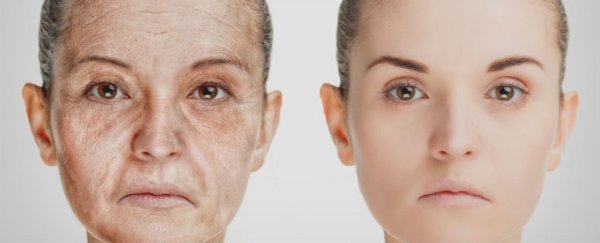In terms of biological aging, the body seems to shift gears three times during our lifespans, research from 2019 suggests – with 34 years, 60 years, and 78 years being the key thresholds.
In other words, there's evidence that aging isn't one long, continuous process that moves at the same speed throughout our lives.
The findings might help us understand more about how our bodies start to break down as we get older, and how specific age-related diseases – including Alzheimer's or cardiovascular disease – could be better tackled.
The same study has also put forward a new way of reliably predicting people's ages using the protein levels (the proteome) in their blood.
"By deep mining the aging plasma proteome, we identified undulating changes during the human lifespan," the researchers wrote in their paper, published in December 2019.
"These changes were the result of clusters of proteins moving in distinct patterns, culminating in the emergence of three waves of aging."
The team analyzed data from the blood plasma of 4,263 people aged 18 to 95, looking at the levels of around 3,000 different proteins moving through these biological systems, and acting as a snapshot of what's going on in the body: of those, 1,379 were found to vary with age.
While these protein levels often stay relatively constant, the researchers found that big shifts occurred in the readings of multiple proteins around young adulthood (age 34), late middle age (age 60) and old age (age 78).
Why and how this is happening isn't clear yet; but if the proteins can be traced back to their sources, it could enable a doctor to, for example, warn you that your liver is aging faster than the average person's.
It also emphasizes the link between aging and the blood, something that's been spotted in previous studies.
"We've known for a long time that measuring certain proteins in the blood can give you information about a person's health status – lipoproteins for cardiovascular health, for example," said neurologist Tony Wyss-Coray, from the Stanford Alzheimer's Disease Research Center (ADRC) at the time.
"But it hasn't been appreciated that so many different proteins' levels – roughly a third of all the ones we looked at – change markedly with advancing age."
The researchers were able to set up a system whereby the mix of 373 selected proteins in the blood could be used to accurately predict someone's age, within around three years or so.
Interestingly, when the system failed by predicting an age that was too young, the subject was usually very healthy for their age.
Another finding from the study gives more evidence to something that's been long suspected: men and women age differently. Of the 1,379 proteins that were found to change with age, 895 (nearly two-thirds) were significantly more predictive for one sex compared with the other.
These are still early findings – the researchers say any clinical applications could still be five to 10 years off – and it's going to take a lot more work to figure out how all of these proteins are markers for aging, and whether or not they actually contribute to it.
Still, it raises the possibility of one day getting a blood test that could measure just how well you are aging, at least at the cellular level.
And the more we know about getting older, the more we can do to counteract it. That could inform everything from knowing what to drink and eat to potentially add on a couple of years of life, to identifying treatments to stave off some of the worst age-related afflictions.
"Ideally, you'd want to know how virtually anything you took or did affects your physiological age," said Wyss-Coray.
The research was published in Nature Medicine.
A version of this article was first published in December 2019.
